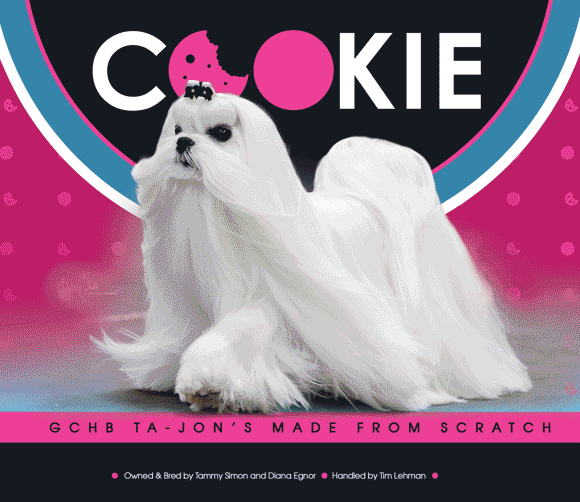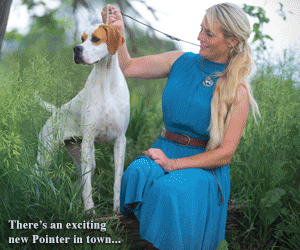From The CC Vault: No Dog Left Behind? – Is It Too Easy To Get A Title?
By: Caroline Coile
Originally published: March 2018
 This month AKC began issuing Achiever Dog certificates to acknowledge dogs that compete in a variety of sports. On the surface that sounds great, but I was surprised to see dogs that I know only as conformation dogs suddenly posting their certificates on Facebook, with friends congratulating them on their versatility. So it turns out the bar is pretty low: “A dog will receive an AKC Achiever Dog certificate when they have been awarded a placement or earned a qualifying score in three different sports.” So a dog that earns any sort of ribbon in conformation (or maybe just chases a lure one time to earn FCAT ribbon), a CGC and a Trick Dog Novice title is now considered an Achiever Dog. Call me old and crotchety, but in my day these dogs were called “just starting out.”
This month AKC began issuing Achiever Dog certificates to acknowledge dogs that compete in a variety of sports. On the surface that sounds great, but I was surprised to see dogs that I know only as conformation dogs suddenly posting their certificates on Facebook, with friends congratulating them on their versatility. So it turns out the bar is pretty low: “A dog will receive an AKC Achiever Dog certificate when they have been awarded a placement or earned a qualifying score in three different sports.” So a dog that earns any sort of ribbon in conformation (or maybe just chases a lure one time to earn FCAT ribbon), a CGC and a Trick Dog Novice title is now considered an Achiever Dog. Call me old and crotchety, but in my day these dogs were called “just starting out.”
Even today, I call the requirements for a CGC, CGCA and Farm Dog “good manners” that I expect every one of at least my adult dogs to have, and even the Novice Trick Dog title something most of my untrained puppies can do just because they live with and interact with me. That said, I’m still in favor of the titles. I think…
Let me back up to the days before I was old and crotchety. Back in the ‘70s when I was a teenager with my first show Saluki. Back when all there was were books and magazines and actually talking to people, and they all said, “a well-rounded dog has titles on both ends.” For my breed the options were conformation, obedience, lure-coursing and tracking. So I earned titles and even Top-10 placements in the first three areas. OK, so he ran away when we tried tracking, but, you know, sighthound! In the years since I’ve always been eager to try any new sport, partly because I often have to write about these sports (and you’d be amazed at the stupid things you write when you’ve not actually participated in a sport!) and partly because I wanted to show that Salukis are not the feral animals they were considered to be when I got my first one. We’ve yet to achieve the tracking (but a Saluki I bred has his TD) but we earned titles in rally, agility (we were even #1!), CGC, Fast Cat and Trick Dog. None of these titles attest to anything about my dogs’ value as Salukis, but they all attest to either their value as everyday companions or the fact that we spent some fun time together.
So while I agree with many of the detractors of these new titles who say they represent a dumbing-down of the sport, overall I think that anything that gets people to interact with their dogs more is a good thing. Of course, the hope is that they will act as the canine equivalent of gateway drugs, and participants will get hooked and need stronger and stronger fixes until they eventually find themselves specialing a dog and going for a UDT.
But the purists among us still scoff, not just at these but other dog-sports-made-easy titles. When rally came on the scene I confess I called it “no-dog-left-behind” obedience, but it’s certainly attracted many former conformation-only types to its ranks. I’d be interested to know if any appreciable proportion of these went onto regular obedience; I would guess a fairly small percentage. Coursing Ability Tests allowed anyone to let their dog chase a plastic bag and brag about his lure coursing savvy. And now if that’s too much, there’s Fast Cat where you can boast about your dog’s speed (except for the part where it’s just sort of an approximation).
I was pretty anti-CAT the first time I was lassoed into huntmastering at a test taking place before the lure coursing trial I was actually there for. Really? A Pug? Who cares if he runs or not? Who cares if he is interested in chasing a plastic bag? Even if you’re convinced this is some measure of coursing ability, who cares unless it’s a coursing breed—-in which case, who cares if he can run a baby course by himself? Those were my thoughts as I welcomed the first entrant with a forced smile, explained the rules, and shouted “Tally-Ho!” By the end of the run I couldn’t help but have a real smile. By the last entrant I was a convert.
Not because I’d seen great coursers or glimpsed true promise—- but because I’d witnessed people proud of their pets. People who had complained about the early roll-call that morning were now asking when the next test was; and people and dogs who had shared a bonding experience. For some it was the first ribbon they’d ever won with a dog. For others, it was the first time their idea of fun and their dog’s idea of fun coincided. I may not be impressed with the title but I’m impressed with any activity that brings dogs and people together, and that gets owners interested in dog sports.
Many of these entry level sports pay lip service to the real jobs of dogs. The CAT lets you get a taste of lure coursing. I confess I ground my teeth when some of these non-sighthound owners boasted about their dogs speed, and I could not help but invite them to stick around for the real lure trial and watch some real runners work. And I’ve heard others bemoan the fact that such baby titles indeed give a false sense of accomplishment. But really, is there any harm in letting people have pride in their dog?
The past year saw the advent of Trick Dog titles. Really? I was at a show when a friend asked if I’d help some evaluators practice administering the new Trick Dog tests. It was free, so sure. Turned out the requirements were minimal and consisted of things the dogs already knew: balance beam, tunnel, weaves, step on a platform, high five and such—-so ten minutes later I had two Trick Dog qualifiers that would only cost me $20 to apply for the title. Hmmm. So OK, I did, since they’d probably be the first of their breed. But I’m the competitive sort so I eventually wondered what the higher level titles required. It looked like I could earn the intermediate with just a few more tricks. But wait—-there was also Advanced. That would take a lot more tricks! So every night while I watched TV we practiced a different trick: crawl, sit up, balance a treat, twirl right and spin left, take a bow—-and then I found myself shopping for props they could use to jump through a hoop, turn on a light or play a keyboard. Some tricks took only minutes to learn—-others several sessions. But the most important trick was the one where the dogs would come and stare at me at my desk until I got up and played trick dog with them. So yes, they both have Trick Dog Advanced (TDA) titles now. Do the titles mean anything? Not really, at least in so far as being better Salukis. But yes, in so far as they encouraged me to spend time bonding with my dogs. The dogs loved it, and I did too, and I regret there’s not a higher level. And I confess it gives us something to do while we are waiting our turn in the group ring. It keeps the dogs from getting bored, the spectators (especially kids) love to see them do their tricks, and I think it shows the public that show dogs are pet dogs just like theirs. But again, you can sneer at this “pet dog” title or you can appreciate that anything that helps people bond with their dog, or be proud of their dog, or show off their dog, is good for dogs. It’s certainly good for AKC both in terms of enticing new people into the world of dog activities and bringing in extra money. They got $120 from me for the three titles times two dogs. And reports are that AKC has received so many applications they must be raking in the cash! And that’s good for all of us.
I’ve just finished reading yet another Facebook rant complaining about these meaningless titles. In this case it was a major lure coursing competitor complaining about people with sighthounds getting CAT titles. One person asked what was so wrong with it? And the complainant replied there was nothing inherently wrong with it “so long as the owner didn’t think it meant anything.” Way to encourage newcomers!
Which brings me to the NOHS debate. Because of all the new competitions AKC has come out with none has evoked the level of disagreement as has NOHS. At the heart of it is whether it was a good idea to set up this “amateur-hour” (others words, not mine) competition in the first place. The best argument against it is that it is in essence an admission on AKC’s part that pros do have an advantage. Well, let’s look at that for a second. At the typical weekend show the majority of entrants are owner-handled. A good, but smaller, percentage of BOB winners are owner-handled. A fair, but even smaller, percentage of group placers are owner-handled. An extremely small percentage of group winners are owner-handled. A tiny percentage of BIS winners are owner-handled. Whether that’s due to poorer quality dogs, poorer quality handling or the power of facial recognition is a point that will elicit further arguments, the answers of which depend on who’s doing the arguing. But the point is, if you’re a typical owner-handler you do feel the odds are stacked against you before you even arrive at the show.
Purists scoff. They see the NOHS as a second-tier competition for people afraid of real competition, another excuse for participation ribbons. “I’m here to win,” say many of these detractors, “not for a consolation prize.” They see the NOHS as widening the chasm between amateur and professional, and that entering it is an admission on the owner-handler’s part that they just want a ribbon—-any ribbon—even if it means barring half of the competition from the ring. The debate will continue, but one thing is for sure: It’s helped entries.
The same is with the GCH title—-purists see it as a means to make competitors happy with second place. Second place is losing, after all. And in truth, the requirements always seemed a huge letdown. In many breeds it’s easier to get the GCH title than it is the Ch title: just go Select (second place) in entries with a lot of class dogs and you’re done. Does winning second place really make you “Grand?” Nonetheless, it’s a great marketing ploy that keeps dogs showing far longer than many would otherwise, and it keeps people participating. With the current state of dog shows, that seems like a good thing.
So back to Achiever Dog, and Trick Dog and Farm Dog and Dock Dog and Flyball and Frisbee Dog and who knows, maybe one day Sleeper Dog (mine will be GCHs at that). The titles themselves don’t mean much, but it’s what those titles represent: Time spent with your dog doing something other than driving or grooming or trotting in a counterclockwise circle. When I see a dog with an alphabet soup behind his name, I don’t scoff at the owner as a “title collector” but as somebody who is sharing experiences with their dog. My challenge to every one of you is to get an Achiever Dog certificate in the mail this year.
Short URL: https://caninechronicle.com/?p=282157
Comments are closed












